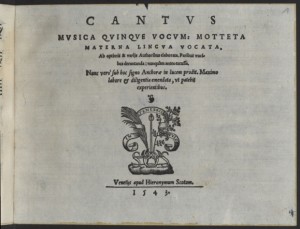Nun-ology at the Brighton Early Music Festival
Professor of Music Laurie Stras reports on the Brighton Early Music Festival and exciting developments relating to her research – including a thoroughly modern approach to funding early music recordings.
Over the last two weekends, I have been along the South Coast in Brighton, heavily involved in events at the Brighton Early Music Festival (http://bremf.org.uk). Two weekends ago, we held our first Festival Preview Day – a series of talks and presentations by performers and musicologists (and performer-musicologists). Although we had no idea whether the event would fly, in the end we had a packed room for most of the day – sharing knowledge, music, and cake. It was particularly delightful to share the platform with one of our brilliant alums (Dr Melanie Marshall of University College Cork; Southampton graduate MA 1997; PhD 2005), who spoke about sixteenth-century women and marriage in popular song.
This last weekend was deeply exciting (and a teeny bit stressful) for me: not only did my ensembles Musica Secreta (http://musicasecreta.com) and Celestial Sirens present our new programme, Lucrezia Borgia’s Daughter, but we also launched a crowdfunding campaign (http://www.crowdfunder.co.uk/lucrezia-borgias-daughter/?) to help us towards the costs of recording our new CD. In just over twenty-four hours, we raised over £1000, over 25% of our initial goal of £4000.
The concert was in St Bartholomew’s Church in Brighton, the tallest church in Europe (apparently it was built to the dimensions of the Ark) – we didn’t feel the cold, though, as we were all layered up in nuns’ habits! We were joined by the sopranos and altos of the Brighton Youth Choir, who did a great job opening the concert with three fifteenth-century laude.
The focus of the concert – and the CD – is an anonymous book of motets for equal voices, published in 1543. I’ve been studying them for over five years, trying to work out who they were for and who might have written them – and I’ve come to the conclusion that they were definitely composed for nuns, and that they probably were written by a princess nun, Suor Leonora d’Este, the daughter of Alfonso I, Duke of Ferrara, and his second wife, the famous Lucrezia Borgia. We were lucky enough to get Arts Council England funding this summer to spend some time with the music prior to the concert. This was very helpful, as the music is very intense, and it requires a different approach to our usual way of singing polyphony.
We have until Christmas to reach our crowdfunding target, and we are looking forward to recording as soon as possible next year. It really is extraordinary music, and so this project has plenty of excitement yet to come!


